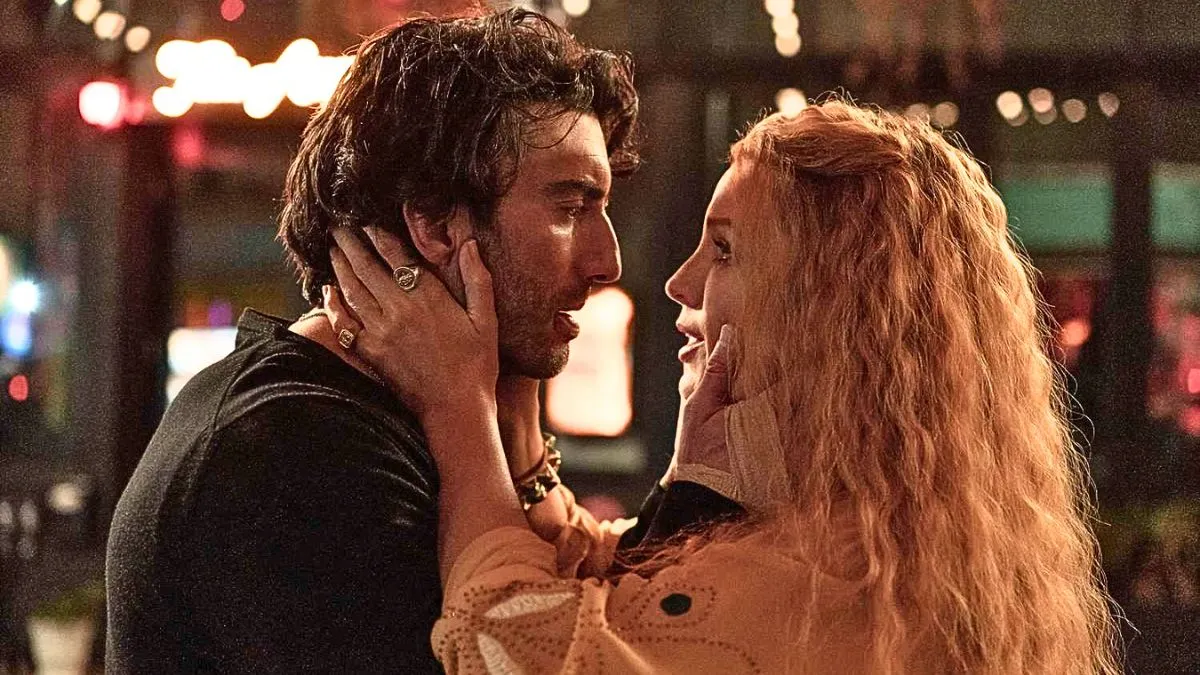
At the end of The Hurt Locker, the loose cannon sergeant William James, played by Jeremy Renner, returns home from the high-stakes tension of diffusing bombs in Iraq. He spends some time with his family but is unengaged in his responsibilities as a husband and father. There, he is a stranger in a strange land, yearning to return to a place more like home to him – the unit in the Middle East where he just spent a year risking his life.
The new photojournalist drama 1,000 Times Good Night is kind of a feature-length version of the last five minutes of The Hurt Locker, exploring the tug of a renowned war photographer to return to war, after an injury subsides her from her job and she has to spend time with her family. That shutterbug’s name is Rebecca (Juliette Binoche) and she has a purpose: to get right into the thick of battle and snap the most compelling pictures possible. Rebecca tells her eldest daughter Steph (Lauryn Canny) that when someone opens his or her newspaper and sees of her photographs, she wants them “to choke on their coffee… to see and feel and react.”
1,000 Times Good Night, directed by ex-photojournalist Erik Poppe, features one of the most arresting starts to a film this year. Rebecca is transferred in the cover of darkness to what originally looks like a burial site. The Afghani women hover over the open grave and seem to be offering silent prayers of mourning. Rebecca snaps some pictures. Suddenly, the woman’s body in that grave awakens, and is led to a room where the women clothe her – with garments and a bomb. The young woman’s head tilts up, as she prays with a look of uncertainty in her eyes. Rebecca keeps taking these haunting photos.
The photojournalist then demands to go in the car with the martyred woman. “I want to tell the story,” Rebecca begs her handler. However, she narrowly escapes death when the explosion goes off. Tossed to the Kabul soil, Rebecca looks as if she’ll never return to a warzone again. Upon her revival, when she sees her husband, marine biologist Marcus (Nikolaj Coster-Waldau), Rebecca is so medicated she can hardly form words. That communication breakdown will later serve as a subtle bit of foreshadowing for their struggling marriage, where her primal need to return to the battleground makes him increasingly worried for her longevity as a responsible parent.
Rebecca returns home with aches in her back, hardly able to stand, but she is relieved to interact with her daughters, the curious Steph and the spoiled Lisa (Adrianna Cramer Curtis), whose lone characteristic seems to be begging her mom to bring her gifts from her foreign travels. “We got so many flowers,” Lisa tells her mum. “People thought you died.” It is that close stroke with death that has Marcus worried, trying his best to convince her never to return. It already causes him so much woe every time she goes, that he will get the call informing him of her death.
However, waddling around the house and attempting to help out picking her daughters up from school causes Rebecca strain. The adjustment only gets worse when she admits to her editor that she actually won’t cover conflicts again, which prompts some begging from the other line. 1,000 Times Good Night has an intriguing moral quandary, between heading out to do righteous work with journalistic integrity and keeping safe at home. Unfortunately, Poppe and Harald Rosenløw-Eeg’s screenplay does its hardest to get to the bane of this dilemma in unconvincing ways.
To get to the struggle between her devotion to journalist and her daughter, the screenwriters set up a scenario that becomes all too soapy and predictable. Conveniently, Steph is working on a project about Africa. She asks her mum to share some snapshots from the conflict in the Congo. Once Rebecca explains the dire circumstances behind the pictures she took with rage and fury, one waits for the plot wheels to turn – an offer from a friend to do some work at a Kenyan refugee camp, an absurd decision from Marcus to let Steph accompany her mother – so that we can forecast where this story is headed.
The direction of the story may be obvious, but it is certainly intriguing. However, one cannot fault the shattering performances, notably from Binoche. No stranger to terrific portrayals, she possesses a nervy intensity while snapping away in enemy territory. We understand her rush to feel important, as well as martyr herself in the merits of her job to serve the public and tell the unfiltered truth. Meanwhile, Binoche is one of the best criers in cinema, letting her eyes wash in grief without overwhelming her face with pain. She makes a valiant effort to hold it together when her family confronts her about some poor decisions, but sometimes fails.
Canny delivers a moving performance as well, although one that is both buoyed and let down by the screenplay. That climactic classroom presentation on Africa, where Steph makes some big statements about her mother, too tidily concludes their conflict. (The next scene, a callback to that disarming opening, also feels on-the-nose.) Coster-Waldau is fine as Marcus, but the role is thankless. A noble man trying his hardest to raise a family, the part at least offers a nice turn on gender roles; typically, it would be the mother’s job to hold the home together as the father got up close and personal with militant groups and jihadists.
1,000 Times Good Night has a riveting moral dilemma at its center, but for every scene of powerful, nuanced acting, there is a clunky symbol or image to make you forget that. A recurring blue-hued dream sequence shows a figure floating both toward and away from a body of water, meant to suggest how closely Rebecca could plunge back into a career that could certainly drown her in turmoil. She later looks out her window to see the people she tried to save in the early bombing scene.
When the film shows Rebecca in a warzone, hiding in a tent while militants storm the camp around her, she pokes her camera out of the tent opening, as you would expect a soldier would place his rifle, firing back at the people outside. The gunshots reverberate with her snapshots, an all-too-clear metaphor. Subtlety is not the strong point of 1,000 Times Good Night, and the screenwriters sometimes have a problem balancing powerful moments with heavy-handed melodrama. However, Binoche is stellar company, giving a turn that is hard to look away from. She lends each moment of grief and anguish a delicateness that few actors could create.






